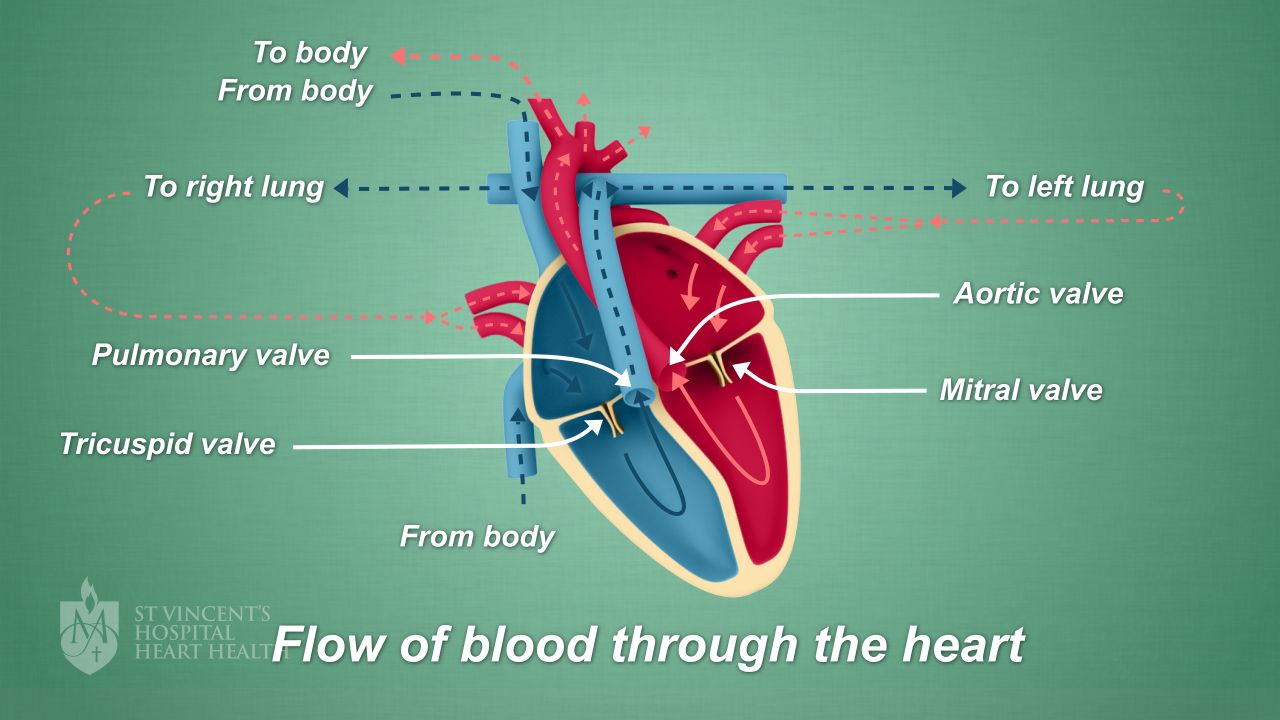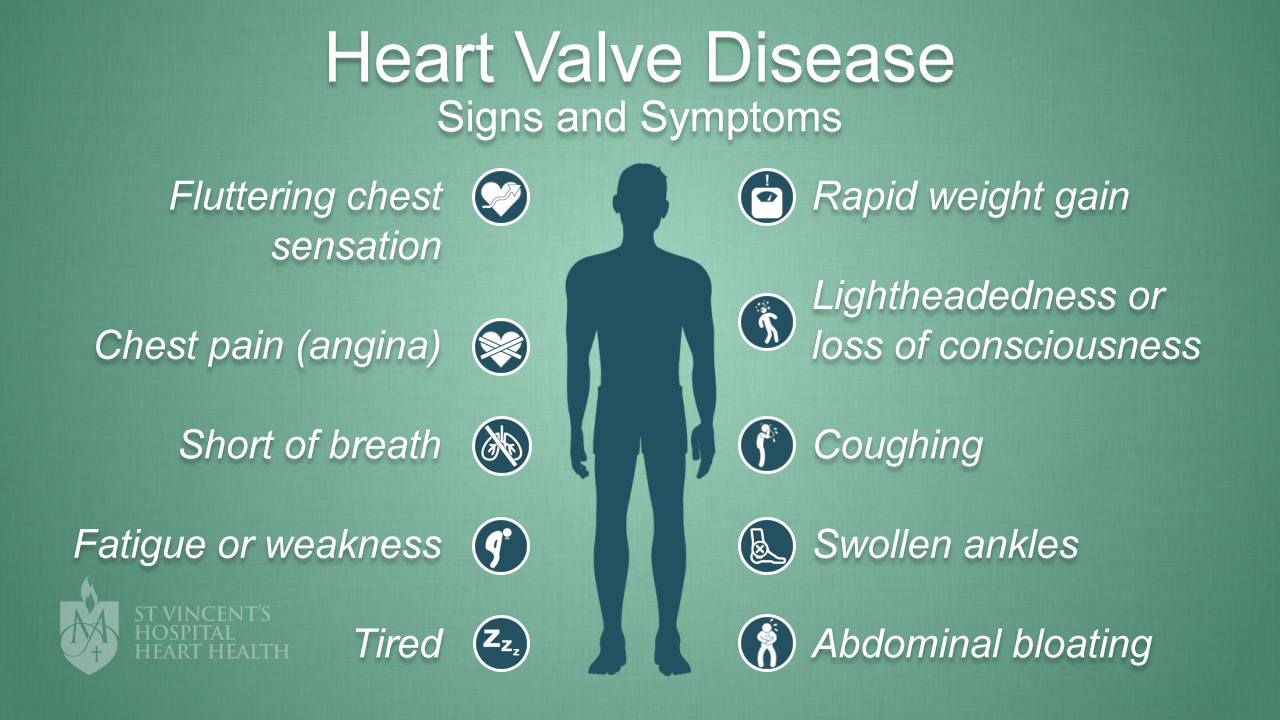Heart Valve Disease
If you have heart valve disease, your heart’s valves can’t open or close as well as they should.
What are heart valves?
What is heart valve disease?
What are the causes of heart valve disease?
What are the signs and symptoms of heart valve disease?
What are the possible tests and procedures for heart valve disease?
What are the possible treatments for heart valve disease?
What is the future plan if you have heart valve disease?
What are heart valves?
Your heart has four valves, which are small flaps that open and close every time your heart beats. Your heart’s valves play a very important role: they allow your blood to flow through your heart in the right direction.
This image below shows how the blood flows through your heart.

What is heart valve disease?
You may develop heart valve disease if your heart’s valves don’t work as well as they should. There are generally two reasons why this happens:
- Stenosis – your valves become stiff or the leaflets fuse, meaning there isn’t as much space for blood to flow through and your heart needs to work harder
- Regurgitation – your valves don’t close tightly, causing blood to flow backwards, making your heart work harder to keep the blood pumping forwards
What are the causes of heart valve disease?
The most common causes of heart valve disease are:
- Birth defects – you may be born with valves that are a different shape or size to healthy valves
- Infection – infection, such as from endocarditis or rheumatic fever, can affect your valves
- Ageing – as you age, calcium deposits may cause your valves to become stiff and thickened
- Heart attack – your heart’s valves may become damaged from a previous heart attack
- Heart failure – this condition may enlarge your heart which impacts the way the valves function
What are the signs and symptoms of heart valve disease?
If you have heart valve disease, you might experience any of the following symptoms described in this diagram.


What are the possible tests and procedures for heart valve disease?
In order to diagnose heart valve disease, your doctor will perform one or more of the following tests:
- A physical examination – your doctor will listen to your heart and lungs, and check if you have any swelling in your ankles or legs
- Chest X-ray – this X-ray will check your heart’s size and find out if there’s any fluid in your lungs
- Echocardiogram – or ‘echo’ looks at how your heart pumps blood, checks your blood flow and sees how well your heart’s valves are working
- Electrocardiogram - or “ECG” checks your heart rate and heart rhythm, and determines if your heart chambers are thicker than they should be
- Cardiac catheterisation and coronary angiography – these tests measure the pressure in the heart’s chambers, their size and function, and flow through the arteries that supply the heart muscle
- Cardiac MRI – an MRI can identify the structure and function of the heart and valves and any damage to your heart
- Exercise Stress test - this type of tests reveals how well your heart works when you exercise
What are the possible treatments for heart valve disease?
If you are diagnosed with heart valve disease, don’t panic – there are many different types of treatments available. Your doctor will recommend the best possible treatment for you, based on the type of heart valve disease you have – as well as how severe it is. Your treatment program will aim to:
- Reduce your symptoms
- Repair or replace your valve
The treatments for heart valve disease include:
- Medications – your doctor will prescribe certain medications to help you manage your symptoms
- Balloon valvuloplasty – a procedure that helps open up your valve
- Non - surgical options - your valve repair or replacement may be done using devices delivered to the heart through a catheter
- Surgery – you may need valve repair or valve replacement surgery
What is the future plan if you have heart valve disease?
One of the most important steps to take as you plan for the future is to stay positive. There are many treatment options available to help you manage heart valve disease, and your doctor will help you to follow the best possible treatment plan for you.
As well as having tests and treatments, you’ll be encouraged to maintain good dental hygiene. This is important as it helps to prevent endocarditis - a condition you’re more likely to get if you have heart valve disease. Tell your dentist if you have heart valve disease.